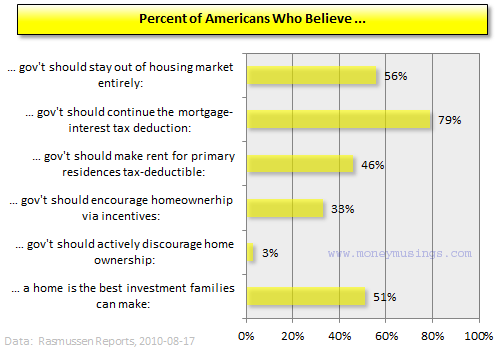A couple of weeks ago, in Ready to Own a Home?, I talked about some mistakes made by too-anxious homebuyers. Well, what do you know? The LA Times presents a fine example of just what I was talking about:
LA Times: Undone By Their Dreams
It’s one family’s tale of housing woe, to be sure.
In 2006, Dawn and Michael Meenan found what they were looking for in Hesperia, in a community called Mission Crest. But they had declared bankruptcy four years earlier and were uncertain they could buy a house here. Then the phone rang.
“Your loan has been approved.”
Ah yes, the joys of housing bubbles … when folks four years removed from a BK can go out and borrow hundreds of thousands for a home in the desert.
Dawn and Michael Meenan first explored Hesperia on Thanksgiving weekend in 2005. …They followed the signs and billboards to the subdivision, set off from the desert by a cinder-block wall. Six builders were showing model homes. A large red balloon soaring above one tract tugged at its anchor.
…Amid the imposing two-story designs, they settled on a modest single-story home — yet with 2,400 square feet, it was large enough for their growing family. The sales representatives told them that one would be available on Newport Street by midsummer, and if they put down a $3,000 deposit they could lock in the price at $365,000.
Lesson One in Homebuyer Edumacation: When people use the word “modest” to describe a $365,000 home, with 2,400 square feet, much buyer heartache lurks down the road.
They could barely scrape together the deposit, and they didn’t have a down payment for the mortgage. The sales representatives didn’t seem worried. Let’s see what we can do, they said, giving the Meenan children crayons to color with and taking notes on the couple’s credit history.
Countrywide Financial Corp. turned them down. Freedom Plus Mortgage said yes. After signing the loan documents, the Meenans worried they would be overextended, but they told themselves that this was what first-time homebuyers do, especially when they’re in their 30s and their family is young.
Now where have I heard that before?
Given their bankruptcy, the Meenans qualified only for a subprime mortgage. Their first loan was fixed at 7.375% for three years and was then adjustable; their second was fixed at 11.625% for 30 years. The payments came to more than $2,500 a month.
Both loans were two percentage points above market rates, and in 2036 they would have to make balloon payments totaling nearly $300,000. Then there were the property and the community taxes — nearly $3,000 twice a year.
You just know this is going to end well, right?
But they managed. When Dawn’s maternity leave was over, she went back to work as a bookkeeper for an Irwindale-based online company that sells vitamin supplements. Michael worked in the firm’s warehouse. Together they made nearly $95,000 a year.
Wow. That’s a very, very nice salary — for any family NOT sucked into a piggybacked $365k deathtrap mortgage. For a family who DID take on the loan, though … ’tis a different story.
And did I mention the home’s location required the Meenans to undertake a 1-hour commute every day?
If it was a sacrifice, they told themselves, it was worthwhile. They were building equity. They were improving their credit scores. In time, their income would rise, and they could refinance. That was what the sales representatives had told them.
In March 2007, Michael was laid off and had to take odd jobs. Three months later, Dawn’s employer gave her a chance to start her own bookkeeping business. She could work at home, and as she brought in clients, the family income climbed back to near six figures. She and Michael felt secure enough to landscape the backyard, put in a patio and plant a vegetable garden.
Whew. For a minute there, I thought this whole setup might not work out as planned!
The idyll proved brief. As the recession deepened, Dawn lost clients, and their income started to fall. In December 2008, they did not pay their property tax. They didn’t have the money. Besides, they rationalized, homes in the area had dropped almost $200,000 in value, and they’d be getting a reassessment and their taxes should go down.
Then one day, as Dawn organized the bills, she saw how fast they were falling behind. She was paying the mortgage later each month, and in July the interest rate on the first loan would reset upward. It could cost them anywhere from $100 to $1,000 more each month.
All completely unexpected, of course.
Of course.
They spoke to the bank but were told that they didn’t qualify for a loan modification, and in May they just couldn’t pay the mortgage anymore. Sad and angry, they stopped paying on the first loan — then, two months later, on the second.
They contacted a real estate agent to list the house. They waited until after Michael’s birthday in August to put up the For Sale sign. They didn’t want to have to explain the situation to their family just yet.
In October, the house was sold for $125,000. As the family waited in the car, Michael went inside for one last look. The sunlight streaming through the windows looked different without the curtains, but it still brought back a flood of memories. When he saw the stain on the carpet from one of the children’s spilled drinks, he cried.
There might have been a time when I’d feel sympathy for these folks, but not any longer. I’ve long since tired of it. No matter what anyone tells you, bad choices have bad consequences. (Unless you’re a TBTF bank. If that’s the case, and you made this loan, good on you. Thanks for taking such a prudent risk. As always, we taxpayers got your back.)



 You want stimulus? Well, how ’bout the chance to go almost 15 months without a house payment?
You want stimulus? Well, how ’bout the chance to go almost 15 months without a house payment?